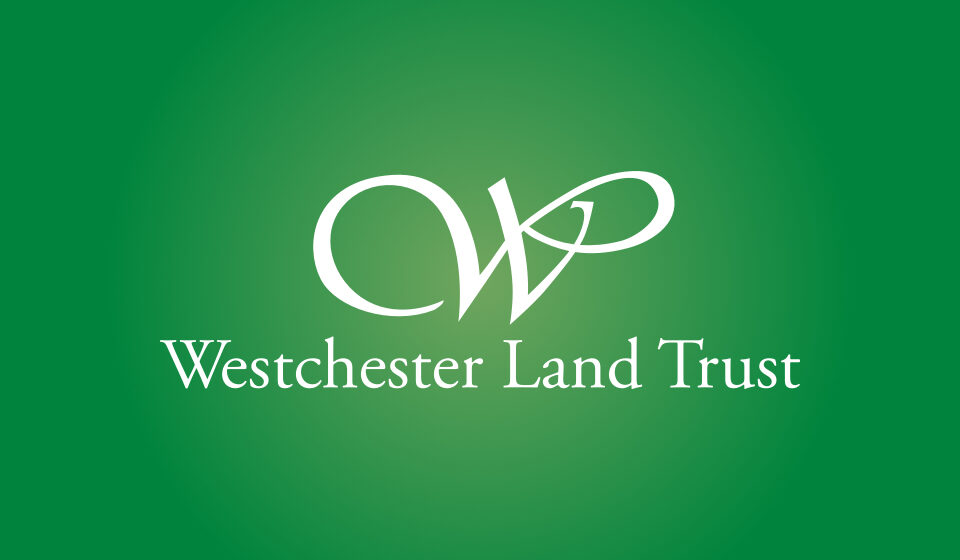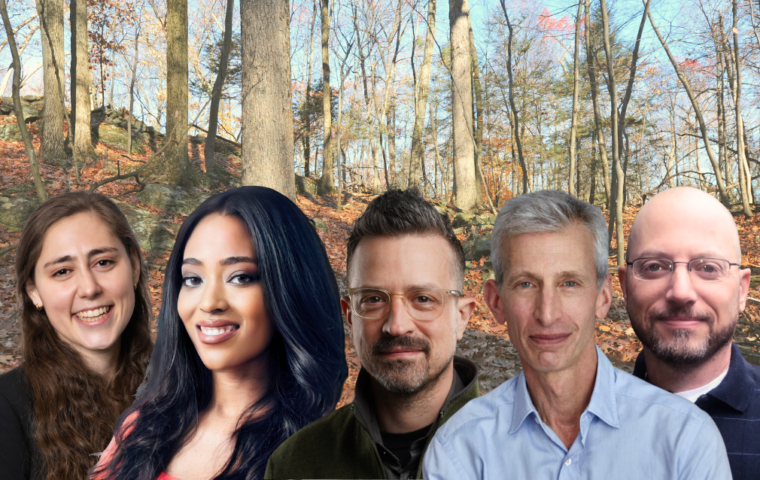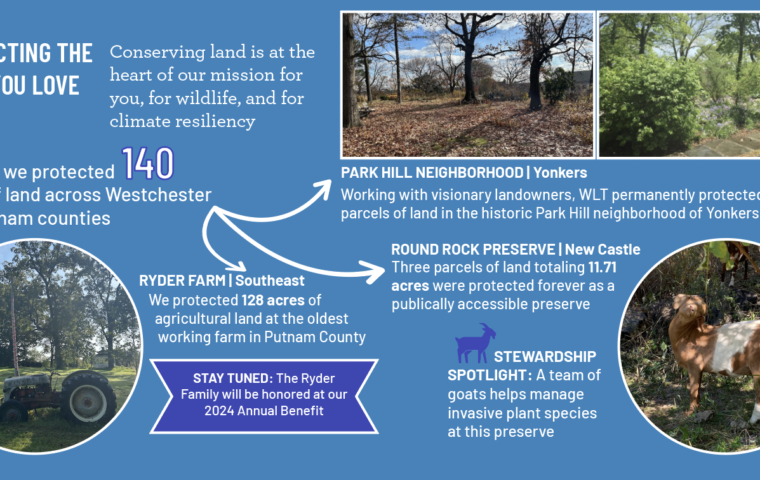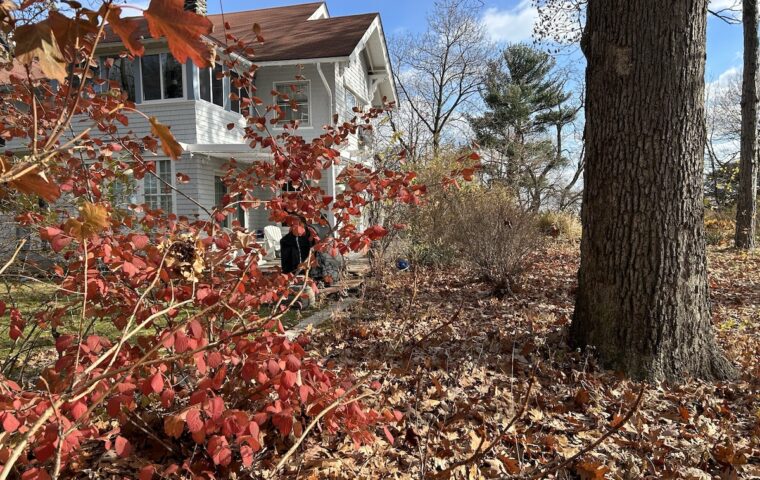
Two conservation victories cap banner year for land protection by WLT
Bedford Hills, NY – Westchester Land Trust (WLT) announced today the permanent preservation of two properties totaling 36 acres within the town of Lewisboro, New York. These important parcels expand an open space corridor near the 370-acre Leon Levy Preserve which is owned by the Town of Lewisboro and protected in perpetuity by a conservation easement held by WLT. In 2018 alone, Westchester Land Trust preserved nine properties totaling 600 acres, marking one of the most successful years since the organization’s founding in 1988, and bringing its total preserved lands to nearly 8,400 acres.
Preservation of both large and small parcels alike has positive benefits for communities. “We are deeply honored to protect lands with high conservation value including those that increase public access to the outdoors. Lewisboro lies in the midst of a key conservation corridor, and there is still much important land we need to protect here,” said founding Westchester Land Trust Director and longtime Lewisboro resident, Susan Henry.
The new Mill River Preserve is adjacent to the Leon Levy Preserve and provides connectivity to the Eastern Westchester Biotic Corridor (EWBC).
The acquisition of a 33-acre parcel encompassing a segment of the Mill River, near Route 123, is a WLT milestone, being the 30th nature preserve to be owned and managed by them. The land was deeded to WLT in order to preserve an extremely sensitive portion of a larger property that will ultimately be developed with several homes and is an example of conservation and development working together to mitigate environmental harm. The parcel is adjacent to the eastern boundary of the Leon Levy Preserve and offers the opportunity for public hiking trail expansion. It boasts a mature hardwood forest, a major wetland complex, and the Mill River which is a tributary of the City of Stamford, CT drinking water supply. Preservation of the parcel provides no-cost “natural infrastructure” for flood mitigation and the protection of public drinking water. The property was one of many originally identified by the Town’s Conservation Advisory Council in its greenway inventory as providing especially important habitat and connectivity to the Eastern Westchester Biotic Corridor (EWBC). The EWBC is a state and locally recognized biodiversity corridor comprising much of the towns of Lewisboro, Pound Ridge and North Salem, notable for its impressive diversity of wildlife habitat that is threatened by development pressures.
|
What is a biodiversity corridor and why are they important? Biodiversity corridors are uninterrupted areas of natural habitat that allow wildlife to safely travel or disperse from one location to another. These corridors play an important role in maintaining connections between animal and plant populations that would otherwise be isolated and therefore at greater risk of local extinction. |
Preserving and expanding this corridor also adds to the climate resilience of the community, a critically important factor as climate change impacts the region with greater frequency and severity of storms, flooding, and temperature extremes.
“We’re thrilled that WLT’s newest open space parcel is contiguous to the Leon Levy Preserve – which is a local treasure and enjoyed by thousands of hikers each year. The Mill River parcel expands this corridor and protects the viewshed from Leon Levy trails. The vast wetlands are home to a diverse array of local plants and animals,” said Brendan Murphy, Westchester Land Trust’s Director of Stewardship. “WLT is excited that the Lewisboro Trail Volunteers has so generously offered to partner with us to create an extension from the nearly five-mile trail network within Leon Levy Preserve. This future trail will serve as the connection between the two properties, giving the public access to unique and beautiful habitats.”
WLT’s protection of the Mill River parcel means habitat for wildlife including the box turtle, an animal currently listed as a species of special concern in both NY and CT, is protected forever.
In addition to the Mill River parcel, WLT has also completed the conservation of a 3-acre property on Ridgefield Avenue located between the Leon Levy Preserve and the Gossett Conservation Area, a 31-acre nature sanctuary. The property will remain in private ownership and will not be open to the public. The land features a mixed-age woodland and wetland that will now be protected entirely by a conservation easement. A conservation easement is a voluntary legal agreement between a landowner and a land trust that permanently restricts the development of a property in order to protect the land’s important conservation values. WLT holds 208 conservation easements throughout Westchester and eastern Putnam Counties and has the responsibility to monitor each easement at least once annually in perpetuity.
“We made the decision to conserve our property with WLT because we love these habitats, views and woods – oaks, hickories, maples, beech and other special trees. We grew up exploring and enjoying them and wanted to ensure their permanent protection,” said Paul Schreiner, the landowner who donated the easement in November 2018. “This land has always been very special to us; it was acquired by my family nearly 50 years ago for the purpose of conservation then when we first moved to town. My father is long deceased, but the land–now the Heinz R. Schreiner Preserve in his name—and the views remain as beautiful as ever. We learned early in the easement process that its proximity to already protected open space is a key factor that made this a priority parcel for WLT to work on with us. We are quite happy to know this land will be protected forever.”
To learn about Westchester Land Trust’s land protection work please call John Baker, Land Conservation Projects Manager, at 914.234.6992 or John@westchesterlandtrust.org.
Join us at the Leon Levy Preserve on Friday, January 25th, from 6-7:30 pm for a family-friendly “Owl-centric” Story Hike! Learn more about the protection of these two parcels and our plans to extend the public trail network within Leon Levy Preserve. During the walk we will hear the picture book classic story, “Owl Babies,” by Martin Waddell, search for owl clues, find out what owls eat, and learn the sounds our local owls make. This program is sponsored by the Lewisboro Library and Westchester Land Trust.
To learn about this program, volunteer opportunities and getting involved in WLT’s programs and outings, please call Kristen O’Hara, Conservation Programs Coordinator, at 914.234.6992 ext. 14 or Kristen@westchesterlandtrust.org.
ABOUT WESTCHESTER LAND TRUST
Based in Bedford Hills, NY the Westchester Land Trust has worked for 30 years with public and private partners to preserve land in perpetuity, and protect and enhance the natural resources in Westchester and eastern Putnam counties—a densely populated region under persistent threat from the pressures of development. Through the use of conservation easements and outright land acquisition, WLT’s efforts benefit the long-term health of these communities by safeguarding critical watershed areas, air quality, food supply and natural habitats, as well as contributing to climate resiliency. Since its founding in 1988, WLT has preserved nearly 8,400 acres of open space including 775 acres of preserves owned by the organization which are free and open to the public year-round.
For more information visit westchesterlandtrust.org and connect with us on Facebook (http://www.facebook.com/WLandTrust), Instagram (@WestchesterLandTrust), and Twitter (https://twitter.com/WLT_NY)










